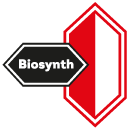
Bilastine API Export Regulations | GMP-Compliant Global Guide
Bilastine API Export Regulations | GMP-Compliant Global Guide
Last Updated: 16th January 2026
Bilastine API exports from India require strict WHO-GMP compliance, correct HS code classification, regulatory documentation (CoA, DMF, CPP), and—when exporting to Europe
Bio-Synth, a WHO-GMP–certified API manufacturer based in Hyderabad, India, ensures full regulatory compliance, patent due diligence, and global-ready documentation for Bilastine API buyers across 45+ countries.
Introduction: Why Bilastine API Export Compliance Matters
As pharmaceutical trade evolves, exporting APIs like Bilastine involves navigating increasingly complex global regulatory frameworks.
For pharmaceutical procurement professionals, formulation scientists, regulatory teams, and bulk API buyers, understanding and complying with Bilastine export regulations is critical to ensure uninterrupted global supply, faster approvals, and zero compliance risk.
With over 80 years of pharmaceutical manufacturing expertise, BioSynth operates at the forefront of regulatory-compliant API exports from India. As a WHO-GMP–certified API manufacturer, BioSynth supplies high-quality Bilastine API with complete traceability, documentation readiness, and international regulatory alignment.
What Is Bilastine and Why Is It in Global Demand?
Bilastine is a second-generation, non-sedating antihistamine used for the treatment of:
- Allergic rhinitis
- Chronic idiopathic urticaria
Its high receptor selectivity, minimal CNS side effects, and favorable safety profile have made it a preferred molecule in global allergy therapy markets.
Key Global Markets for Bilastine API
- European Union
- Latin America
- Asia-Pacific
- Middle East & Africa
As global allergy prevalence rises, pharmaceutical companies increasingly source bulk Bilastine API from India, recognized worldwide for cost efficiency, regulatory maturity, and scalable manufacturing.
Understanding Bilastine API Export Regulations
Exporting Bilastine—whether as an API, intermediate, or finished formulation—requires compliance with international pharmaceutical, customs, and trade regulations.
Below are the core regulatory checkpoints buyers and suppliers must address.
1. Regulatory Approvals & WHO-GMP Compliance
Bilastine API manufacturers must comply with the World Health Organization – Good Manufacturing Practices (WHO-GMP).
BioSynth’s manufacturing facilities in Hyderabad, Telangana, India are:
- WHO-GMP certified
- ISO 9001:2015 compliant
- Routinely audited by global regulatory authorities
GMP compliance is mandatory for exports to regulated markets including the EU, USA, Canada, Japan, and Australia.
2. HS Code Classification for Bilastine API
Correct Harmonized System (HS) code classification is essential for:
- Customs clearance
- Import/export taxation
- Avoiding shipment delays or penalties
BioSynth ensures market-specific HS code verification, aligning export documentation with each importing country’s customs requirements.
3. Import Permits & Market Authorization
Depending on the destination country, Bilastine API imports may require:
- Certificate of Analysis (CoA)
- Certificate of Pharmaceutical Product (CPP)
- Free Sale Certificate (FSC)
- Drug Master File (DMF) or ASMF submissions
BioSynth provides regulatory-ready documentation upfront, helping buyers reduce approval timelines and accelerate commercialization.
Requirement for Bilastine APIs
For exports to the European Union, Bilastine APIs manufactured in India must be supported by an EU Written Confirmation (WC) issued by the national authority.
BioSynth’s EU Export Compliance Includes:
- Batch-wise WC issued by India’s CDSCO
- Cross-referenced CoAs and validated analytical data
- Timely submission of GMP inspection reports
This ensures European customers receive EU-ready APIs suitable for immediate formulation or resale.
Export Controls & Patent Landscape Considerations
While Bilastine is not classified as a restricted or dual-use substance, certain jurisdictions enforce:
- Export control laws
- Intellectual property protection
- Patent exclusivity regulations
Patent Compliance Approach
Depending on the region, salt forms, polymorphs, or synthesis routes may still be patent-protected.
BioSynth conducts jurisdiction-specific patent landscape assessments prior to export, mitigating IP risks for global buyers.
Common Bilastine Export Challenges — And How BioSynth Solves Them
| Challenge | BioSynth’s Mitigation Strategy |
| GMP documentation delays | Proactive submission of complete regulatory dossiers |
| Customs classification variability | HS code verification across target markets |
| Regulatory non-harmonization | In-house regulatory experts covering 35+ countries |
| Patent ambiguity | Pre-export patent clearance checks |
| Supply chain disruptions | Dedicated production lines & batch scalability |
Why Source Bilastine API from India?
India is one of the world’s most trusted API manufacturing ecosystems.
Key Advantages:
Cost Efficiency
Optimized supply chains and economies of scale lower API production costs without compromising quality.
Regulatory Experience
Indian manufacturers are well-versed in:
- CTD & eCTD dossiers
- GMP audits
- COFEPRIS, CAPA, Russia GMP, and other regional filings
Robust Infrastructure
Advanced reactors, validated HPLC labs, and cleanroom-controlled environments meet global quality standards.
BioSynth: Your Trusted Bilastine API Export Partner
BioSynth combines legacy expertise with modern compliance systems, making it a preferred sourcing partner for global pharma companies.
What Sets BioSynth Apart:
- 80+ years in pharma manufacturing (since 1943)
- WHO-GMP certified API units in Hyderabad
- Global supply network across 45+ countries
- Integrated QC from raw material to final API
- Strong expertise in regulatory filings & audits
Key Therapeutic Areas & API Portfolio
| Therapeutic Segment | Key APIs |
| Tuberculosis | Bedaquiline, PAS Sodium |
| Cardiovascular | Carvedilol |
| Antihistamines | Bilastine |
| Antipsychotic | Amisulpride |
| Diabetes | Empagliflozin, Dapagliflozin |
Emerging Trends in Global API Sourcing
- DMF-ready APIs and eCTD support
- Increased focus on supply chain resilience
- Adoption of green chemistry & sustainable manufacturing
- Growth of digital B2B API sourcing platforms
BioSynth aligns with all these trends through in-house synthesis, compliance transparency, and sustainable production protocols.
Exporting Bilastine API successfully requires regulatory vigilance, GMP compliance, patent due diligence, and a reliable manufacturing partner.
By partnering with BioSynth, pharmaceutical companies can:
- Reduce regulatory risk
- Accelerate approvals
- Ensure uninterrupted global supply
With over eight decades of pharmaceutical excellence, BioSynth remains a trusted Bilastine API manufacturer in India, committed to quality, compliance, and long-term partnerships.
Contact BioSynth today for:
- Custom Bilastine API quotes
- Drug Master Files (DMF)
- Regulatory & export consultation
Frequently Asked Questions (FAQs) on Bilastine API Export
1. Is Bilastine API exported from India compliant with global regulatory standards?
Yes. Bilastine API exported from India must comply with WHO-GMP standards and local regulatory requirements of the importing country. Reputed manufacturers like BioSynth operate WHO-GMP–certified facilities and provide complete regulatory documentation, including CoA, DMF support, and export certifications, ensuring global compliance.
2. What regulatory documents are typically required to import Bilastine API?
Buyers generally require:
- Certificate of Analysis (CoA)
- Drug Master File (DMF) or ASMF (for regulated markets)
- Certificate of Pharmaceutical Product (CPP) or Free Sale Certificate
- EU Written Confirmation (for European markets)
Exact requirements vary by country, but established exporters proactively supply these documents to reduce approval timelines.
3. Is EU Written Confirmation mandatory for Bilastine API exported to Europe?
Yes. For Bilastine API manufactured in India and exported to the European Union, a Written Confirmation (WC) issued by the Indian regulatory authority is mandatory. It confirms that the API is manufactured in compliance with EU-equivalent GMP standards and is required for customs clearance and market authorization.
4. How do manufacturers ensure patent compliance when exporting Bilastine API?
Manufacturers conduct patent landscape and freedom-to-operate (FTO) assessments before export. While Bilastine itself is not a controlled substance, certain salt forms, polymorphs, or synthesis routes may still be protected in specific jurisdictions. Reliable API exporters verify patent status country-by-country to minimize IP risks for buyers.
5. What factors should buyers consider when selecting a Bilastine API supplier?
Buyers should evaluate:
- WHO-GMP certification and audit history
- Availability of DMF and regulatory support
- Patent due diligence processes
- Supply chain reliability and batch scalability
- Experience exporting to their target markets
Choosing an experienced manufacturer with proven global exports significantly reduces regulatory and supply risks.


Post a comment